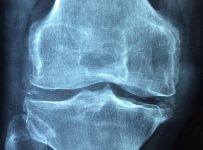Water retention in women can lead to noticeable belly bloating. Men do not have to worry about water retention so much, but they can experience a bloated sensation after eating certain foods. Women have the double whammy of bloating from retaining water, as well as from a side-reaction to consuming specific food items. Today’s question is, can you cut down on belly bloat by cutting back on bread in your diet?
Ask yourself this question.
Have you noticed that your stomach feels a little “off” after eating bread? Do you love the taste of different breads, but dislike the bloated, gassy or uncomfortable feeling they give your stomach? If so, you could have a wheat sensitivity. It isn’t the bread itself causing the problem, but the wheat used to make it.
Don’t worry, you can still eat bread. You just have to change the types of bread that you put into your body. Though experts agree that a genuine food allergy to bread is extremely rare, wheat sensitivity is becoming increasingly common. Also called wheat intolerance, this condition can lead to bloating, vomiting, diarrhea and stomach pain after consuming certain types of bread.
Isabel Skypala, PhD, is a Specialist Allergy Dietitian at the Royal Brompton and Harefield NHS Foundation Trust in London. She recently noted that “Probably 1/3 of patients in my allergy clinic complain of digestive symptoms” after eating bread. That high incidence rate tells us that weight sensitivity may be more widespread than is being reported.
How to Tell If Wheat Is a Problem for You
If you have a wheat allergy, not too common, you could begin sneezing, wheezing and itching within minutes after eating a wheat-based product. Celiac disease is also a condition caused by eating wheat. You need to see your doctor or a general practitioner for a blood test to determine if you have this condition.
There is no diagnostic test for wheat sensitivity, but if you develop diarrhea, cramps, bloating and sickness hours after eating wheat, you could have a problem.
The good news is that a digestive reaction to wheat products is not dangerous, and certainly not life-threatening. But it can cause serious discomfort. Some people just find it harder to digest wheat products than others. So, what foods contain wheat, and what can you eat instead?
Beer, soy sauce, some pasta and cereals, many biscuits, doughnuts, cakes and pastries contain wheat. Obviously, any bread that lists wheat or gluten as an ingredient contains wheat. Steer clear of these foods, or limit them and see how you feel. Opt for buckwheat pasta, quinoa, porridge, cornflakes and Rice Crispy cereal as alternatives to wheat-based products. Bread is also available made from wheat substitutes, corn, quinoa and rice.















